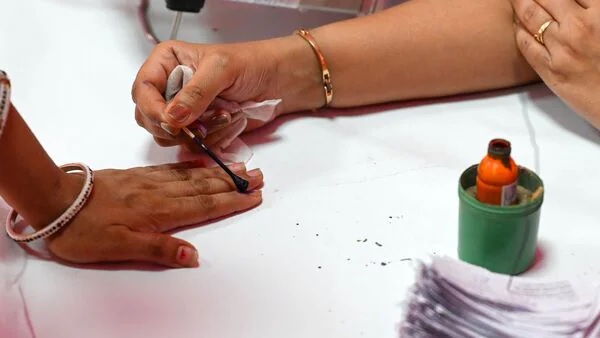J&K assembly elections: A multi-party fray with unpredictable outcomes
Jahangir Sofi
Srinagar, Sep 05 (KNO): The erstwhile state of Jammu and Kashmir is slated to witness its first assembly elections since the repeal of Article 370 on August 5, 2019. The Election Commission of India (ECI) announced the schedule for elections on August 16, with polling to be held in three phases across 90 constituencies in Jammu and Kashmir.
The major political parties in the poll battle, according to the news agency – Kashmir News Observer (KNO), include the National Conference-Congress alliance, the Peoples Democratic Party (PDP), the Bharatiya Janata Party (BJP), Awami Ittehad Party, Apni Party and several independent candidates.
Political Landscape in J&K: 2014-2024
The last assembly elections in Jammu and Kashmir were held in 2014, resulting in a PDP-BJP coalition government. However, the government collapsed in 2018 after the BJP withdrew support from PDP under Mehbooba Mufti.
Since then, the political landscape has changed significantly, particularly after the revocation of the region’s special status.
The BJP plans to contest the elections independently, while the National Conference (NC) and Congress have formed an alliance. Under this arrangement, NC will contest 51 seats, Congress will contest 32 seats, and there will be ‘friendly contests’ in five constituencies of Jammu and Kashmir. Additionally, one seat each has been allocated to CPI(M) in south Kashmir and Panthers Party in the Jammu division.
Parties in Fray
Bharatiya Janata Party (BJP)
The BJP, aiming to increase its influence in the Muslim-majority region of Jammu and Kashmir, has so far announced candidates for over 44 out of 90 seats, with plans to potentially contest more. The party’s performance in the 2020 District Development Council (DDC) elections was notable, particularly in the Jammu region, although it struggled in the Valley.
In the run-up to the Lok Sabha elections, while NC and PDP contested against each other for the three seats in Jammu and Kashmir, the BJP focused on Ladakh, Udhampur, and Jammu, facing Congress in these areas.
National Conference-Congress alliance
NC and Congress have formed an alliance, with NC contesting 51 seats and Congress 32. Five constituencies will see ‘friendly contests,’ while CPI(M) and Panthers Party will contest one seat each.
NC’s manifesto pledges to work towards restoring Articles 370 and 35A, reinstating statehood, overturning post-2019 laws affecting J&K’s special status, providing jobs for unemployed residents, releasing political prisoners, promoting India-Pakistan dialogue, limiting land ownership to residents, and repealing the Public Safety Act (PSA).
The first list of over 30 candidates includes Omar Abdullah, who will contest from the Ganderbal and Budgam constituencies, reversing his earlier stance of not entering the poll fray until statehood was restored.
Congress has also released its initial list of candidates, with its new state chief Tariq Hamid Karra contesting from Central Shaletang, party general secretary Ghulam Ahmad Mir running from Dooru, and former state unit chief Vikar Rasool Wani from Banihal.
Congress is heavily relying on Rahul Gandhi to rally its base in J&K. During a recent visit to Srinagar, Gandhi called for restoring J&K’s statehood, stating, “Running Kashmir and Jammu from Delhi doesn’t make sense.”
Peoples Democratic Party (PDP)
Although the PDP is not part of the INDIA alliance, its president, Mehbooba Mufti, has stated that she would support the alliance if it adopts the PDP’s agenda.
The party’s manifesto echoes NC’s, advocating dialogue with Pakistan, the revocation of central laws like the PSA, and the restoration of Jammu and Kashmir's special status. The manifesto also commits to overturning other central laws, such as the Unlawful Activities (Prevention) Act (UAPA), the Armed Forces Special Powers Act (AFSPA), and the Enemy Act.
PDP has released a list of candidates, with some running against NC candidates. Mehbooba Mufti has decided not to seek re-election from Anantnag, instead, her daughter Iltija will make her electoral debut from the Bijbehara constituency.
The PDP has ruled out any alliance with BJP, labelling the Congress-NC alliance as "power-hungry".
Other key players
Other parties in the race include Sajjad Lone’s J&K People’s Conference (PC), former Congress leader Ghulam Nabi Azad’s Democratic Progressive Azad Party (DPAP), and Altaf Bukhari’s J&K Apni Party.
Azad, who quit Congress in 2022, launched DPAP to enter J&K politics. Altaf Bukhari, who was one of the few J&K politicians not detained in 2019, broke away from PDP along with 30 other leaders to establish the J&K Apni Party. The party's primary demands include restoring statehood, reinstating J&K’s domicile rights, and extending Article 371 to the region. The party has so far fielded over 23 candidates, with Bukhari himself running for the Chanapora seat.
Delimitation and voter demographics
The delimitation commission’s 2022 exercise increased the number of assembly constituencies from 87 to 90, with 43 seats in Jammu and 47 in Kashmir. Additionally, nine seats—three in Kashmir and six in Jammu—were reserved for scheduled tribes.
In 2014, Jammu and Kashmir had 7,316,946 voters, with 3,854,791 males and 3,462,092 females. Currently, J&K has over 8.7 million electors, including 44.46 lakh males and 42.62 lakh females. Notably, there are 3.71 lakh first-time voters (aged 18-19) and 20.7 lakh young voters (aged 20-29).
Election phases & results
The assembly elections will be held in three phases:
Phase 1: September 18 for 24 constituencies
Phase 2: September 25 for 26 constituencies
Phase 3: October 1 for 40 constituencies
Results for all 90 constituencies will be declared on October 8.
Voter turnout in the 2014 assembly elections
The total number of votes polled in the 2014 election (EVM + Postal) in Jammu and Kashmir was 4,794,374, with a voter turnout of 65.52%.
Political significance
The mix of seasoned politicians, new faces, regional political parties, emerging political startups, moderate separatist activists turning mainstream politicians, and independents adds to the unpredictability of the upcoming assembly elections in Jammu and Kashmir, making it one to watch closely—(KNO)
